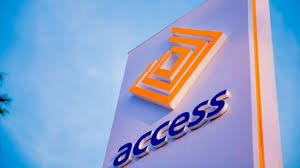Business
FirstBank Empowers Nigeria’s Digital Lending Charge with FirstCredit

In the fast-evolving world of digital banking, Nigeria stands on the brink of a financial revolution. As the global pandemic has accelerated digitalization, the need for accessible, efficient, and reliable financial services has never been more crucial. FirstCredit by FirstBank emerges as a groundbreaking digital lending solution designed to meet the demands of Nigerians where the need for quick cash is ticking ever northward.
The shift towards digital banking in Nigeria has been both rapid and transformative. With the increasing penetration of mobile phones and internet access, more Nigerians are embracing digital solutions for their financial needs. This trend has been further amplified by the COVID-19 pandemic, which necessitated minimal physical contact and prompted a surge in digital transactions.
Digital banking offers numerous advantages, including convenience, speed, and accessibility. For many Nigerians, especially those in remote areas, digital banking services have provided unprecedented access to financial tools and resources. However, despite these advancements, a significant gap remains in the availability of quick and hassle-free credit facilities. This is where FirstCredit steps in.
In a country where traditional lending processes are often bogged down by paperwork, collateral requirements, and lengthy approval times, FirstCredit emerges as a beacon of innovation. It addresses several critical needs, including:
Accessibility: Many Nigerians still lack access to traditional banking services. FirstCredit bridges this gap by offering loans that can be accessed from anywhere, anytime, using a mobile phone or tablet. There is no need to visit a bank, making it an ideal solution for those in remote or underserved areas. You do not need a smartphone to access FirstBank’s FirstCredit.
Speed: In a fast-paced economy, waiting weeks for loan approval is not feasible for many individuals and businesses. FirstCredit ensures that loan applications are processed swiftly, with funds disbursed immediately upon approval. This quick turnaround is crucial for addressing urgent financial needs.
Simplicity: Traditional loans often require extensive documentation and collateral, which can be a barrier for many. FirstCredit simplifies the process by eliminating these requirements. All that is needed is an active mobile number registered for USSD banking and a history of regular account transactions with FirstBank.
Flexibility: With a maximum loan amount of N300,000 and a flexible repayment tenor of up to 30 days, FirstCredit offers terms that are adaptable to the borrower’s needs. The flat interest rate of 8% and a 5% insurance fee per transaction are straightforward and transparent, ensuring borrowers are fully aware of the costs involved.
Features of FirstCredit
First Credit is designed with user convenience and financial inclusivity at its core. Here are some of its standout features:
Easy Access via USSD: Customers can apply for loans by simply dialing *894# and following a few straightforward steps. This USSD code is accessible on any mobile device, ensuring that even those without smartphones can benefit from the service.
No Documentation or Collateral: The absence of cumbersome paperwork and collateral requirements makes the application process smooth and accessible.
Immediate Disbursement: Once approved, the loan amount is credited to the borrower’s account immediately, providing instant financial relief.
Flexible Repayment: Borrowers have the option to repay the loan before the 30-day tenor, allowing for flexibility based on their financial situation.
Eligibility Criteria: To qualify, customers must have been in a relationship with FirstBank for at least six months, have a valid BVN, a good credit history, and use the mobile number registered for USSD banking. Regular account transactions further enhance eligibility.
The introduction of FirstCredit marks a significant milestone in Nigeria’s digital banking journey. As digital lending becomes more embedded in the financial ecosystem, it promises to unlock new opportunities for individuals and businesses alike.
For FirstBank, the move towards digital lending is not just a strategy for retaining market share but also a means to drive business growth and profitability. By leveraging technology, banks can offer personalized, efficient, and scalable financial services that meet the evolving needs of their customers, which FirstBank has leveraged on.
Moreover, the broader adoption of digital lending solutions like FirstCredit can have a transformative impact on Nigeria’s economy. It can empower small businesses with the capital they need to grow, support individuals in financial need, and foster a more inclusive economic environment.
FirstCredit is more than just a lending product; it is a visionary step towards a future where financial services are democratized and accessible to all Nigerians. As digital banking continues to evolve, solutions like FirstCredit will play a pivotal role in shaping Nigeria’s more inclusive and dynamic financial landscape.
Qualitative indicators suggest that FirstCredit has successfully addressed key financial needs in Nigeria. It’s design, focusing on accessibility, speed, and simplicity, aligns well with the demands of the Nigerian market. Continued success can be inferred from its widespread adoption and the broader positive trends in digital lending within the country. And Nigerians can trust that with FirstCredit, there is no ‘wayo’ because it is powered by West Africa premier financial institution and financial inclusion services provider, FirstBank.
Culled from NairaMetrics
Business
CBN Retains Interest Rate at 27%

The Monetary Policy Committee of the Central Bank of Nigeria has maintained the benchmark interest rate at 27 per cent, extending its pause on monetary tightening.
The CBN Governor, Olayemi Cardoso, announced the decision on Tuesday at the end of the committee’s 303rd meeting in Abuja.
Cardoso said, “The Committee decided by a majority vote to maintain the monetary policy stance,” indicating that members were not yet convinced that current economic conditions warranted another reduction.
The move follows the 50-basis-point cut implemented in September 2025, the only rate reduction since the tightening cycle began under the current CBN leadership.
It also marks the fourth consecutive hold this year.
The MPC had raised rates six times in 2024 amid surging inflation and currency pressures.
The Punch
Business
Access Bank Launches “DettyFusion” Platform for Seamless Detty December Experience

Access Bank Plc, Nigeria’s largest retail bank, is set to unveil DettyFusion, an innovative all-in-one digital platform designed to help Nigerians at home and in the diaspora seamlessly discover, plan, and enjoy entertainment events during the upcoming Christmas and New Year festive season.
Billed as the first-of-its-kind entertainment aggregator in the country, DettyFusion will serve as a centralized hub where users can explore event calendars, purchase tickets, access exclusive discounts, participate in curated festive experiences, and make safe, seamless payments throughout the holiday period.
Speaking on the forthcoming launch, Access Bank’s Head of Mobility, Ishmael Nwokocha, said the platform was inspired by the bank’s commitment to enhancing customer experience during the highly anticipated Detty December season.
“Every December, Nigerians look forward to moments that bring joy, connection, and unforgettable experiences. The launch of DettyFusion will create a single gateway that makes it easier, safer, and more convenient for customers to enjoy the thrills of Detty December,” Nwokocha stated.
He added that the platform reflects Access Bank’s drive to deliver innovative lifestyle solutions that extend beyond traditional banking services. “DettyFusion brings together key features that meet the needs of today’s digitally active and experience-driven audience,” he said.
With this initiative, Access Bank continues to reinforce its position as a leading lifestyle enabler, supporting Nigeria’s creative sector while empowering customers to enjoy top-tier entertainment during the festive season.
With DettyFusion, Detty December just got smarter, more convenient, and even more rewarding.
Business
How Access Bank is Supporting Women Driving Africa’s Growth Story

Across Africa, women are fast becoming the heartbeat of economic transformation. From bustling open-air markets to high-tech boardrooms, women-led enterprises are redefining what is possible for the continent’s future.
Whether as market traders expanding their reach through digital platforms, tech founders scaling innovations across borders, or artisans turning local crafts into global brands, women’s contributions are now central to Africa’s economic resurgence.
Even as they break new ground, many still face formidable barriers. Access to finance, mentorship, business education, and supportive networks remains limited. Structural issues such as weak property rights, gender bias, and inadequate legal protections often hinder women from securing loans or expanding their businesses.
Consequently, many women-owned ventures remain small, informal, and vulnerable to economic shocks.
Recognising both the promise and the obstacles, Access Bank has positioned itself at the forefront of empowering women across the continent. Recently named Africa’s Best Financier for Female Entrepreneurs by the EMEA Finance Awards, the Bank has earned global recognition for its commitment to inclusion, innovation, and sustainable impact.
At the centre of this effort is the W Initiative, one of Africa’s most comprehensive women-focused banking programmes. Unlike conventional banking, it combines finance with mentorship, training, and community support, acknowledging that true empowerment requires more than access to capital. The initiative meets women wherever they are on their entrepreneurial journey, from start-ups to growing enterprises and corporate leadership.
The W Power Loan offers affordable credit with flexible terms, enabling women to invest in expansion, inventory, or technology. The W Academy provides leadership and business training on financial literacy, marketing, and regulatory compliance, while the W Community connects women to peers, mentors, and role models across industries.
Importantly, these offerings extend beyond urban centres. From microloans sustaining traders in rural markets to leadership programmes developing female executives in multinational firms, Access Bank’s approach is deliberately inclusive. By partnering NGOs, business associations, and government agencies, it reaches women in underserved communities, ensuring participation in Africa’s economic rise.
The results are evident. Thousands of women have accessed credit, training, and networks through the Bank’s initiatives, enabling them to launch and scale businesses, create jobs, and uplift their communities. The ripple effects are far-reaching: increased household income, improved family wellbeing, and greater economic resilience. Women who once faced daunting barriers now serve as role models and change-makers, inspiring others to follow their path.
Studies show that when women thrive, societies prosper. The World Bank and African Development Bank note that empowering women fuels GDP growth, improves health outcomes, and enhances social stability. By directly addressing structural gaps in access to finance and information, Access Bank helps to unlock this transformative potential.
Apart from supporting entrepreneurs, Access Bank promotes gender inclusion within its own organisation. Its leadership pipeline identifies and advances talented women, while mentorship and wellness programmes help female professionals thrive. The Bank also uses public platforms, from conferences to policy dialogues, to share success stories and advocate for gender diversity across sectors.
The EMEA Finance recognition thus goes beyond trophies and titles; it affirms that profitability and purpose can coexist. For Access Bank, supporting women’s advancement is smart economics. By embedding inclusion into its DNA, the Bank is shaping a financial ecosystem that views women as equal partners in progress.
Access Bank’s influence also extends into advocacy. Through forums, roundtables, and research collaborations, the Bank engages policymakers, civil society, and business leaders to identify and dismantle barriers facing women entrepreneurs. Its campaigns amplify women’s voices, spotlighting their achievements and driving conversations around inclusive growth.






